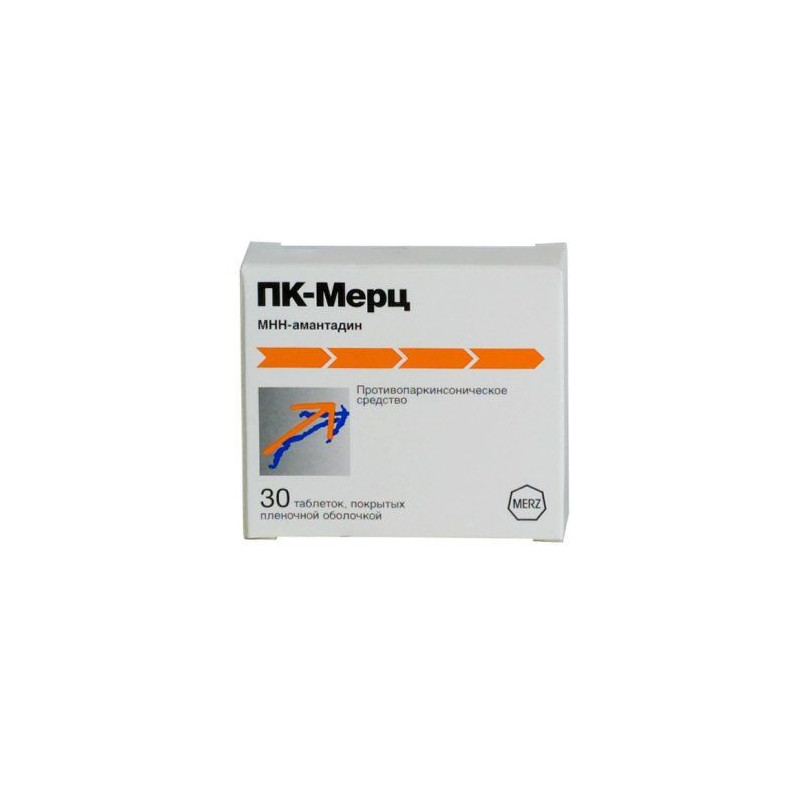



 All payments are encrypted via SSL
All payments are encrypted via SSL
 Full Refund if you haven't received your order
Full Refund if you haven't received your order
Parkinson's disease:
- Muscular rigidity.
- Tremor.
- Hypo or akinesia.
- Hypersensitivity to any of the components of the drug.
- Severe congestive heart failure (class IV on the scale of the New York Heart Association).
- Cardiomyopathy.
- Myocarditis.
- Atrioventricular block II and III.
- Bradycardia with a heart rate of less than 55 beats / min.
- The prolongation of the QT interval is more than 420 ms.
- Ventricular arrhythmia (including ventricular flutter).
- Pregnancy and breastfeeding period.
- Low blood levels of potassium and Magnesium.
- Simultaneous administration with drugs that extend the QT interval.
- Severe renal failure (creatinine clearance less than 10 ml / min).
- Childhood.
- Hereditary galactose deficiency.
- Lactase deficiency.
- Glucose-galactose malabsorption.
- Phenylketonuria.
- Saccharose-isomalt insufficiency.
- Hereditary fructose deficiency.
Contraindicated in pregnancy and lactation.
Inside, after eating with a small amount of liquid, preferably in the first half of the day.
The first 3 days - 1 pill per day, then increase the dose to 2 pills per day, with a further dose increase of 1 pill per week.
The usual effective dose is 1 to 3 pills twice a day.
The maximum daily dose is 600 mg.
In the case of combined treatment, it is necessary to determine the dose individually.
The last dose is recommended to be taken in the afternoon, no later than 16-00.
Use in elderly patients, in particular, in patients suffering from a state of excitement and confusion, predlaring and delirium. Lower dosage required.
From the nervous system, sensory organs and psyche: Often - anxiety, irritability, visual hallucinations, psychomotor agitation, dizziness, headache, decreased visual acuity, insomnia. Very rarely: epileptic seizures, peripheral neuropathy, temporary loss of vision.
Cardiovascular: Very rarely - arrhythmia, tachycardia, ventricular fibrillation, prolongation of the QT interval, development or worsening of heart failure, orthostatic hypotension. Often - marble skin syndrome in combination with swelling of the ankles and lower legs.
On the part of the gastrointestinal tract: Often - nausea, vomiting, dry mouth, decreased appetite, dyspepsia.
Others: Often - urinary retention in patients with prostate adenoma. Very rarely: skin allergies, dermatosis, photosensitization, polyuria, nocturia.
Treatment of PC-Mertz should not be stopped suddenly, as this can lead to worsening of symptoms.
Patients suffering from cardiovascular diseases should be under constant medical supervision when prescribing the drug PK Mertz.
Alcohol is contraindicated during treatment.
Influence on ability to drive motor transport and work with mechanisms. Use with caution while working drivers of vehicles and people whose profession is associated with increased concentration of attention.
Concurrent use of amantadine and drugs, causing an increase in the QT interval, in particular:
Some class I A antiarrhythmic drugs, for example:
- Quinidine.
- Disopyramide.
- Procainamide.
- Amiodarone.
- Sotalol.
- Thioridazin.
- Chlorpromazine.
- Pimozide.
- Astemizol.
- Terfenadine.
- Erythromycin.
- Clarithromycin.
- Sparfloxacin.
- Bidupin.
- Halofantrine.
- Co-trimoxazole.
- Pentamidine.
- Tsisaprid.
- Bepridil.
Simultaneous use of diuretics, a combination of triamterene / hydrochlorothiazide, can lead to an increase in the concentration of amantadine in plasma.
When taken concomitantly with other anti-parkinsonian drugs (such as levodopa, Bromocriptine, Memantine, trihexyphenidyl), it may be necessary to lower the dose of the concurrent drug, or both, to avoid undesirable consequences, in particular, psychotic reactions.
Anticholinergics, sympathomimetics and memantine: increase side effects.
Funds that stimulate the central nervous system (including psychostimulants), ethanol increase the risk of side effects.
Symptoms: nausea, vomiting, tremor, ataxia, decreased visual acuity, lethargic condition, dysarthria, epileptic seizures, arrhythmia.
Treatment: gastric lavage, taking activated charcoal, symptomatic therapy.
Store at a temperature not higher than 25 ° С.
5 years.
Pc merz